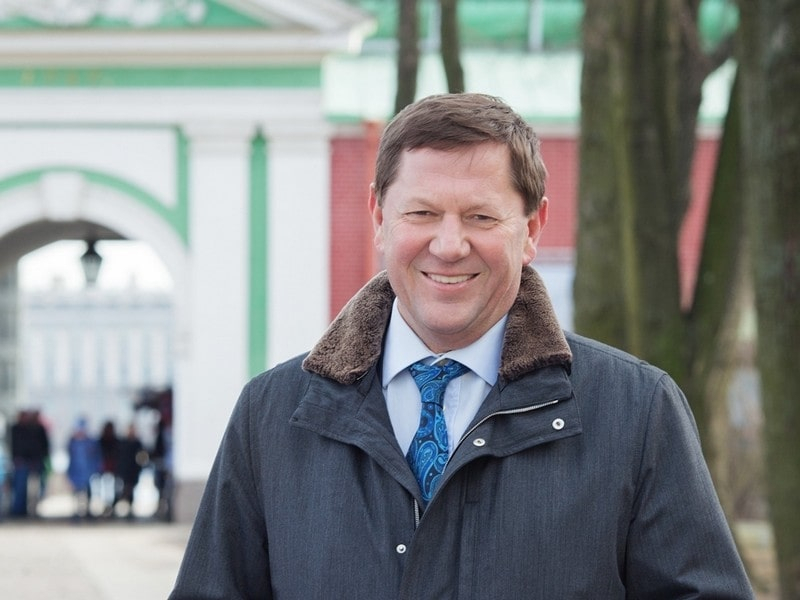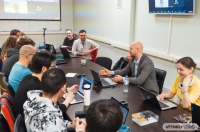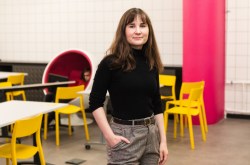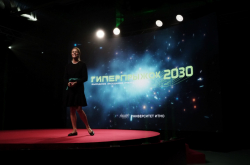On ITMO’s website it is stated that ITMO is the first “non-classical” university. What does it mean? How is ITMO different from classical universities?
ITMO University is dynamically developing, ready for rapid changes and open to new things. The research and educational profile of the university is looking towards interdisciplinary research and programs that combine two or more scientific fields, like, for instance infochemistry, Art and Science, bioinformatics, urban studies, etc.
People are always at the center of ITMO because we value talent, respect the individual and try to help everyone to discover their potential. Thus, students play a big part in the university’s management structure, voicing their opinions on ITMO’s development. They are also members of the Academic Council, they coordinate projects and mentor the students who have just entered the university. Using the demands of our students to guide us, we understand that ITMO needs to create individual learning tracks and develop not only hard competencies but also sought-after soft skills. It is they that help our students to quickly adapt, progressively get better and reach their professional goals.
All of the above as well as our corporate culture based on the University’s mission and values, is what makes ITMO a non-classical university.
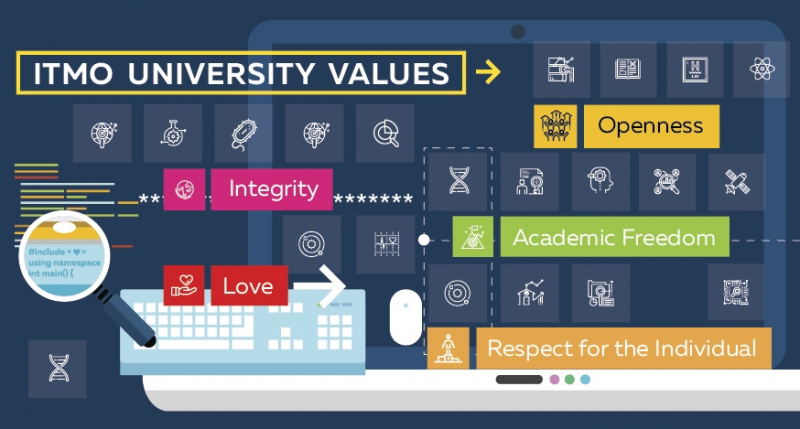
ITMO has recently celebrated its 120th anniversary. How ambitious are its plans for the next 20 years? What places in the international rankings are you striving for? What kind of fields are you planning to develop?
All of the Nobel prize level achievements are the result of interdisciplinary research initiatives. And ITMO University applies this very same interdisciplinary approach by tackling such global challenges as safe information storage and transfer, improvement of the quality of life and average lifespan. Thus, we are working in the fields of bioinformatics, computational genomics, infochemistry, digital humanities, quantum communications, and Art & Science.
Moreover, social and communicational aspects are considered important for the development and support of research activities. It is crucial to talk about our discoveries and inventions in an accessible way, and to bring it to target audiences, our partners, colleagues, and students at all levels – to explain the essence and usefulness of our research and how it can be applied in our daily lives.
In our Strategy for 2027, we have already announced our ambitions to get into the top-200 of the leading world university rankings such as QS and THE. And within the next 20 years, we are setting a goal to get into the top-100 of the world’s best universities.
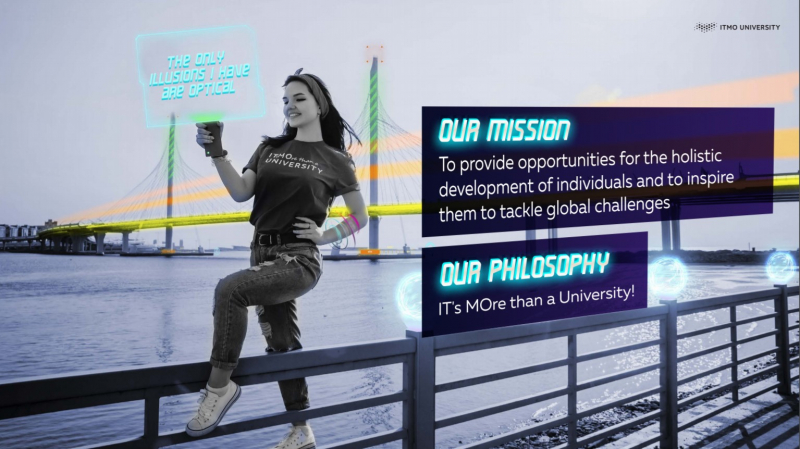
ITMO is well-known as being a non-classical university that advances in interdisciplinary fields. It is reflected in the fact that now the university is represented in 17 subject rankings of ARWU, QS and THE that cover natural, engineering and social sciences. And in the field of computer science, as well as automatization and management, we have been in the top-100 for several years already, and we’re planning to enter the top-50.
Naturally, ITMO will continue to expand in the fields that have only recently been added to the university profile. In this sense (from the point of view of being represented in the rankings), ITMO is coming closer to being a classical university year after year by developing a whole spectrum of research fields.
ITMO is one of Russia’s leading technical universities, and in competitive programming the university has received global acclaim with your students winning various contests. How did the university manage to achieve that? What strategy do you have now that attracts talented students and young specialists?
To get good results you need to find talented people and create a convenient atmosphere to work in; you shouldn’t disturb them while they’re busy working and shouldn’t relax even when you’re called the champion of champions. That’s why ITMO can boast not only its programmers, but also robotics engineers, physicists, chemists, and scientific communicators.
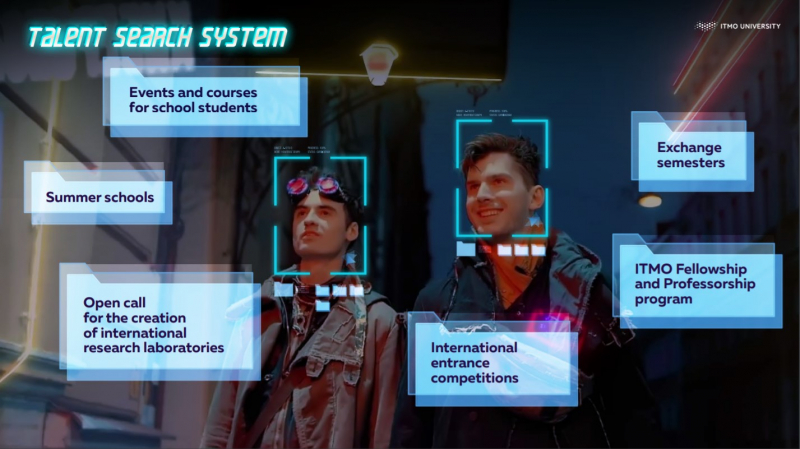
We follow the very same principle to build our strategy for attracting talents – we use a whole spectrum of tools from finding the people with the highest Unified State Exam (USE) scores to supporting various contests and hackathons, and we also try to think outside the box. For instance, we’ve been hosting the ITMO.STARS competition for four years. It allows students who don’t have the entrance USE scores but have excellent results in research or creative activities that cannot be evaluated in points, to get the opportunity to study at ITMO’s top educational programs on tuition-free positions. Dozens of students have won the competition over the years, and many of them have made us proud – they are young researchers, developers and engineers.
Over the last 20 years, the students and researchers at ITMO have designed and created a wide variety of new projects: from Kotlin programming language (Java’s competitor) to spiderweb-based composite materials and the famous antivirus badge. What are the principles guiding your research activities? What tasks do you set for your students and research associates?
The opportunity to grow together with ITMO is the principle important for us in attracting our staff, students and researchers. Academic freedom is one of our values. For us, it means freedom of development, freedom of self-identification, freedom of decision making, freedom of choosing your field of studies.
Naturally, responsibility is the other side of freedom. It’s about responsibility for the results too. We delegate our tasks and never interfere in the process of their completion – we try to evaluate the results and not the process. This freedom of development, transparency of the management system and the ability to set and tackle ambitious tasks is what attracts researchers to ITMO University.
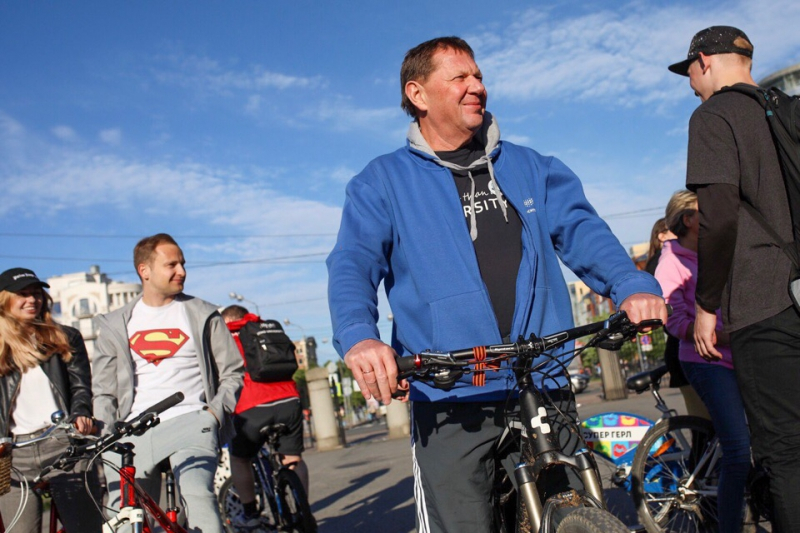
Which professions are the most popular among your students right now? Do you agree with their choice and what do you consider to be the professions of the future?
It’s hard to specify certain professions as those of the future. At ITMO we think above them, as we believe that an ITMO University graduate is first and foremost someone, who can think at a wide scale, critically analyze and process any information, analyze and solve unformalized, non-trivial and interdisciplinary tasks. Here, we don’t teach our students, we work together with them – and that is our main difference from other universities. We consider it important to develop creative and communicative skills alongside professional ones. Our educational programs are created in such a way that our students can change their field of interest after starting their studies. We strive to make the number of individual learning tracks equal to the number of our students. Developing a system for creating these individual tracks, we see that the educational track has to consist of modules that appear and change each year or sometimes even each month. Each student can build their own track and we help them make their decisions learning analytics tools, where multifactor analysis allows us to give recommendations to our students. But the final choice is always up to them.
